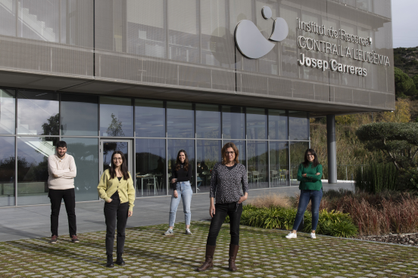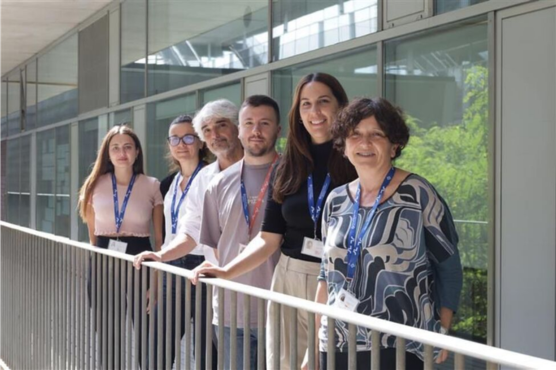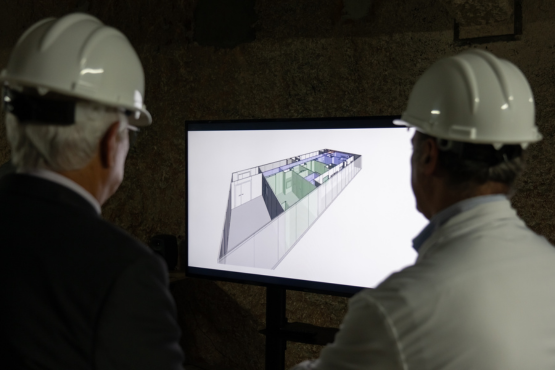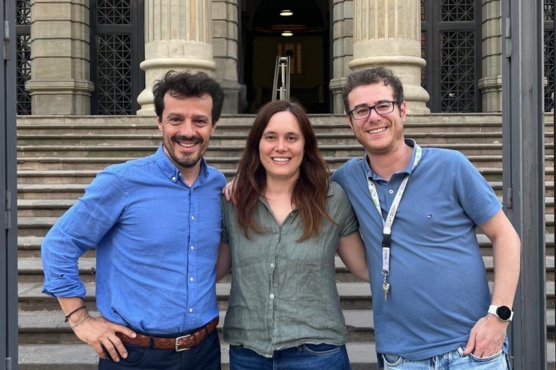
The “Lymphocyte Development and Disease” group, from Josep Carreras Leukaemia Research Institute.
Acute lymphoblastic leukemia (ALL) is the most common type of children cancer and, in some cases, presents with a very poor prognosis in infants younger than one year. Despite the increase of survival chances in pediatric patients with ALL during the last decades, deeper studies of the mechanisms involved in this disease are required, especially in a subgroup of patients with an aberrant genetic alteration (known as t(4;11)).
The “Lymphocyte Development and Disease” group, from Josep Carreras Leukaemia Research Institute, led by Dr. Maribel Parra, has recently published a new paper in Leukemia journal, describing HDAC7 protein as a prognostic marker of this specific subtype of infant ALL. In normal conditions, HDAC7 drives the appropriate formation of B lymphocytes, key cells of the immune system. Moreover, it prevents B lymphocytes precursor cells from acquiring an uncontrolled proliferation, possibly conducting to leukemia onset. The study published demonstrates that HDAC7 expression is almost absent in infants diagnosed of ALL with t(4;11) alteration. Instead, other subgroups with a more favorable outcome, display higher levels of HDAC7.
“We have observed that, when we introduce HDAC7 protein in cells derived from these patients, leukemic cells stop proliferating in an aberrant manner and, most of them, undergo cell death processes. Moreover, data indicate a direct relationship between lack of HDAC7 and chemotherapy resistance, which is very common in these infant patients who, in case of surviving, usually present recurrences”, explains Oriol de Barrios, postdoctoral researcher of the group and first author of the study. “Given these results, which set HDAC7 as a novel marker of good prognosis in t(4;11) infant ALL subtype, our next goal is to find new therapeutic strategies that conduct to a precisely directed HDAC7 induction. We believe that HDAC7 is a promising therapeutic target and that an adequate pharmacologic modulation may considerably increase survival chances of this aggressive subtype of infant ALL”, states Dr. Maribel Parra, who has coordinated the study.
The study has been conducted with an extensive network of collaborators around Europe, from countries like Greece, Italy and the Netherlands, as well as with the participation of Dr. Pablo Menéndez research group, also from the Josep Carreras Institute.







